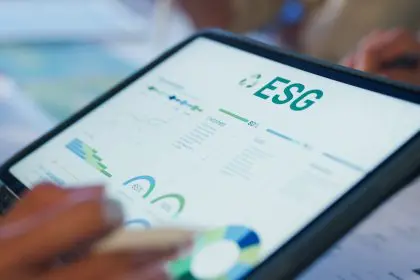Navigating financial challenges often leads individuals to consider drastic measures, with bankruptcy looming as a seemingly inevitable solution. The weight of overwhelming debt can push many to this critical crossroad, pondering if bankruptcy stands as the sole exit route. However, during this financial turmoil, it’s vital to recognize that bankruptcy need not be the singular recourse. Diving into this process demands a comprehensive understanding of the available options and acknowledging that alternatives exist, offering hope and potential resolutions to daunting financial woes.
Before embarking on the journey toward bankruptcy, exploring various avenues becomes paramount. Several alternatives pave the way, providing avenues for consideration and potentially steering individuals away from the significant implications of bankruptcy. These alternatives — often overlooked in the immediacy of financial stress — hold the promise of alleviating debt burdens without the enduring impact of bankruptcy on one’s financial record.
Understanding bankruptcy
Bankruptcy — often seen as a last resort — is a legal process designed to assist individuals and businesses in managing debts they cannot pay. It provides a structured approach to either discharge debts entirely or develop a repayment plan. Despite its benefits in offering a fresh start, bankruptcy leaves a lasting mark on one’s financial record and can significantly impact credit scores.
Exploring viable alternatives
While bankruptcy may seem like the only viable choice, several alternatives might serve as effective measures before opting for such a drastic step.
1. Debt consolidation: This involves combining multiple debts into a single payment, often with a lower interest rate. It streamlines payments, making them more manageable.
2. Debt management plans: Offered by credit counseling agencies, these plans negotiate lower interest rates or payments with creditors, helping individuals repay debts more effectively.
3. Debt settlement: Involves negotiating with creditors to settle debts for less than what is owed. It can be a viable option for those facing severe financial distress.
4. Financial counseling: Seeking advice from financial professionals can provide valuable insights and strategies for managing debt more effectively, potentially avoiding bankruptcy.
5. Increasing income and cutting expenses: Sometimes, finding ways to earn extra income or reducing unnecessary expenses can alleviate financial strain.
Assessing individual circumstances
Determining the most suitable option involves evaluating individual circumstances comprehensively. Factors such as the type and amount of debt, income, assets and future financial prospects play pivotal roles in deciding the best course of action.
Additionally, consulting with financial advisors or bankruptcy attorneys can offer clarity and guidance, helping individuals make informed decisions aligned with their specific situation.
Impact on credit and future financial stability
One crucial aspect to consider when contemplating bankruptcy or its alternatives is the impact on one’s credit history and financial future. Bankruptcy remains on credit reports for several years, affecting the ability to obtain loans, credit cards or favorable interest rates in the future. Exploring alternatives that might have less severe impacts on credit can be beneficial in the long run.
In the realm of resolving financial distress, embracing bankruptcy solely as a panacea should be approached with caution. While it stands as a crucial option, its implications echo long after the debts are settled. The prudent path involves a comprehensive exploration of alternatives, an earnest effort to exhaust every viable avenue before considering bankruptcy as the ultimate resolution.
Personal financial landscapes differ significantly, demanding a tailored approach to debt relief. This necessitates a meticulous evaluation of the individual merits and drawbacks of bankruptcy versus the spectrum of available remedies. Seeking counsel from financial advisors or bankruptcy professionals becomes pivotal in this decision-making process, providing invaluable insights that extend beyond the immediate turmoil.
Empowerment lies in knowledge and foresight. Understanding the nuances of each available alternative allows individuals to navigate their financial labyrinth more effectively. It is this astuteness that could circumvent the necessity of bankruptcy, paving the way towards financial liberty and a more assured future.
This story was created using AI technology.















